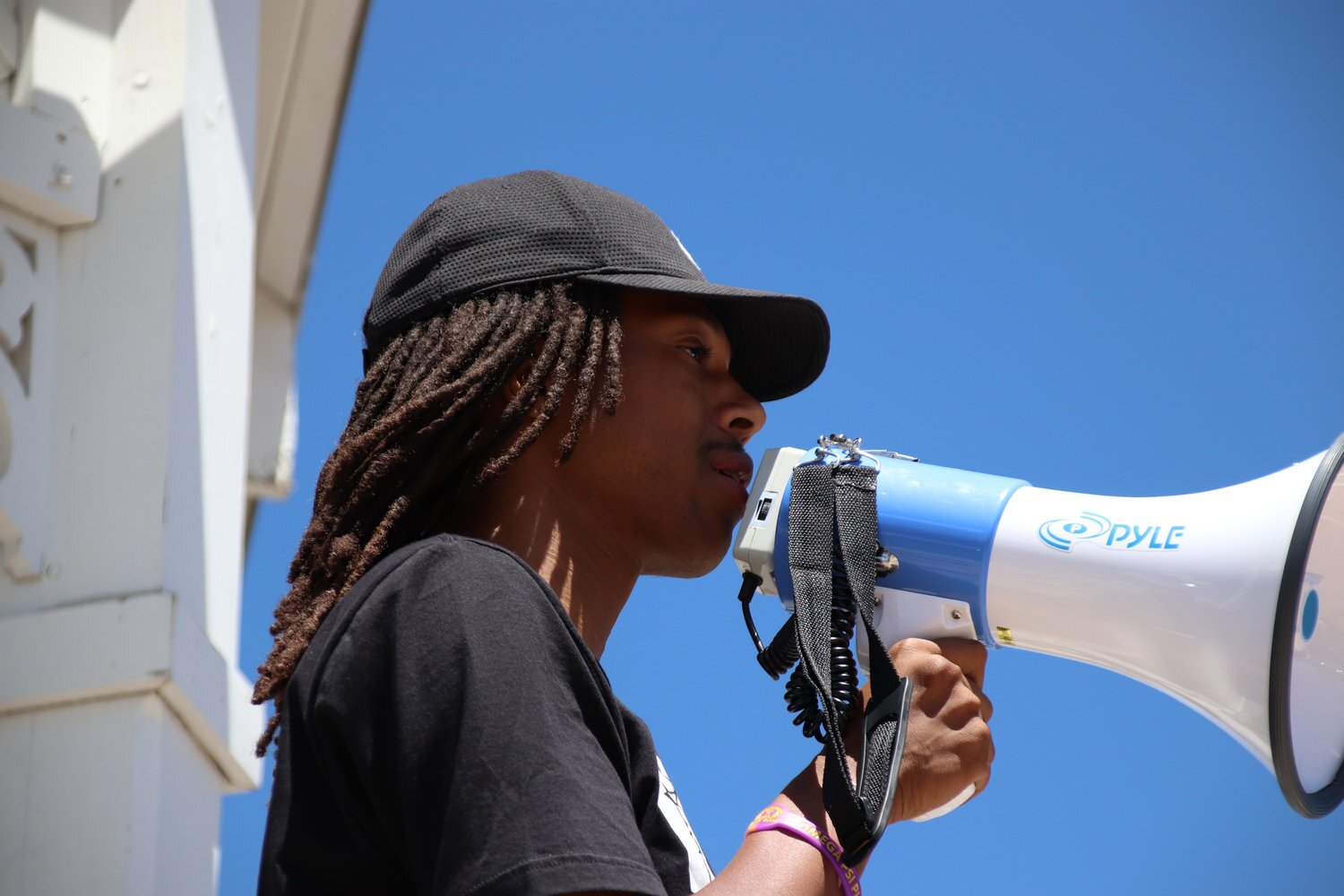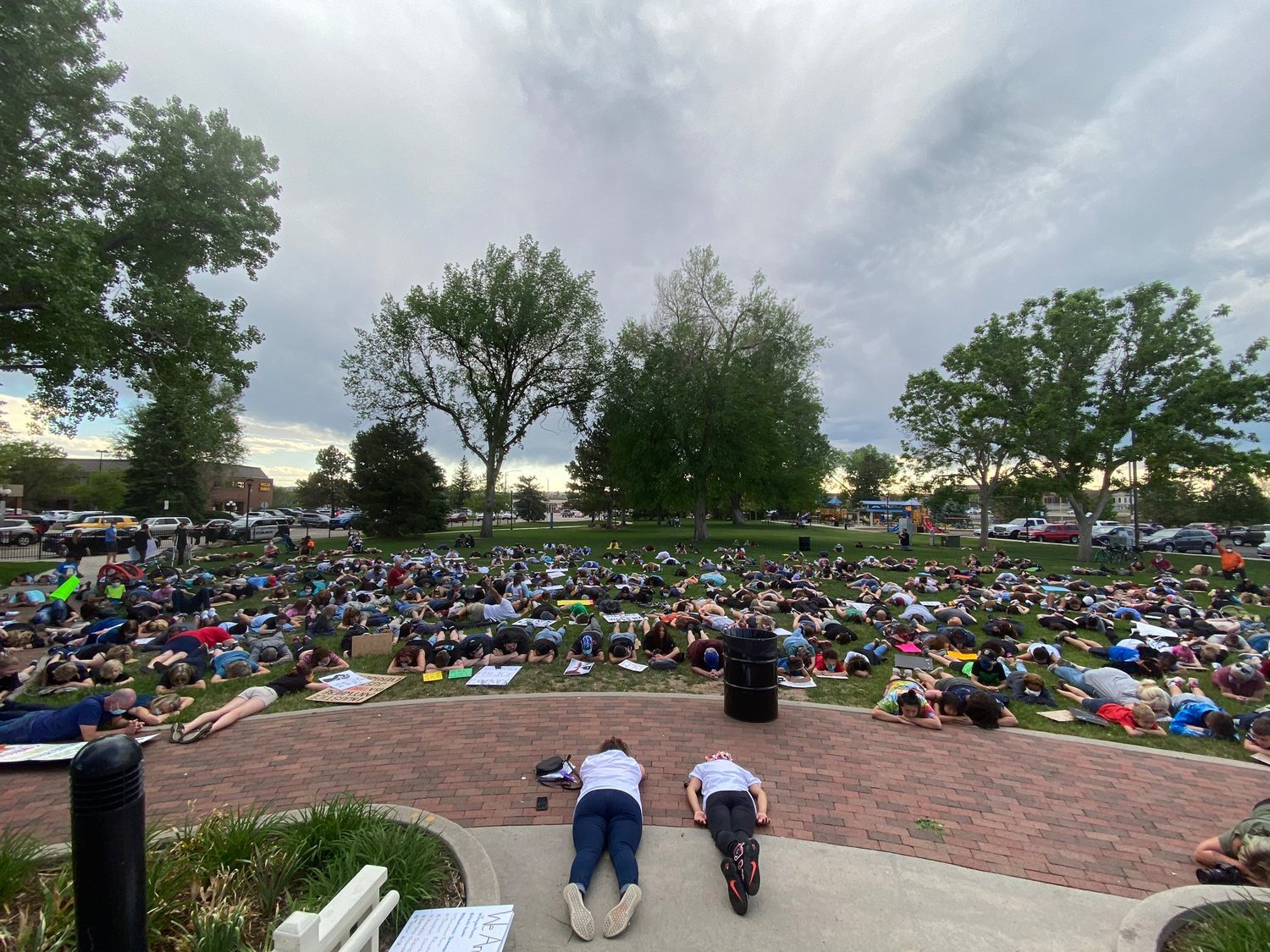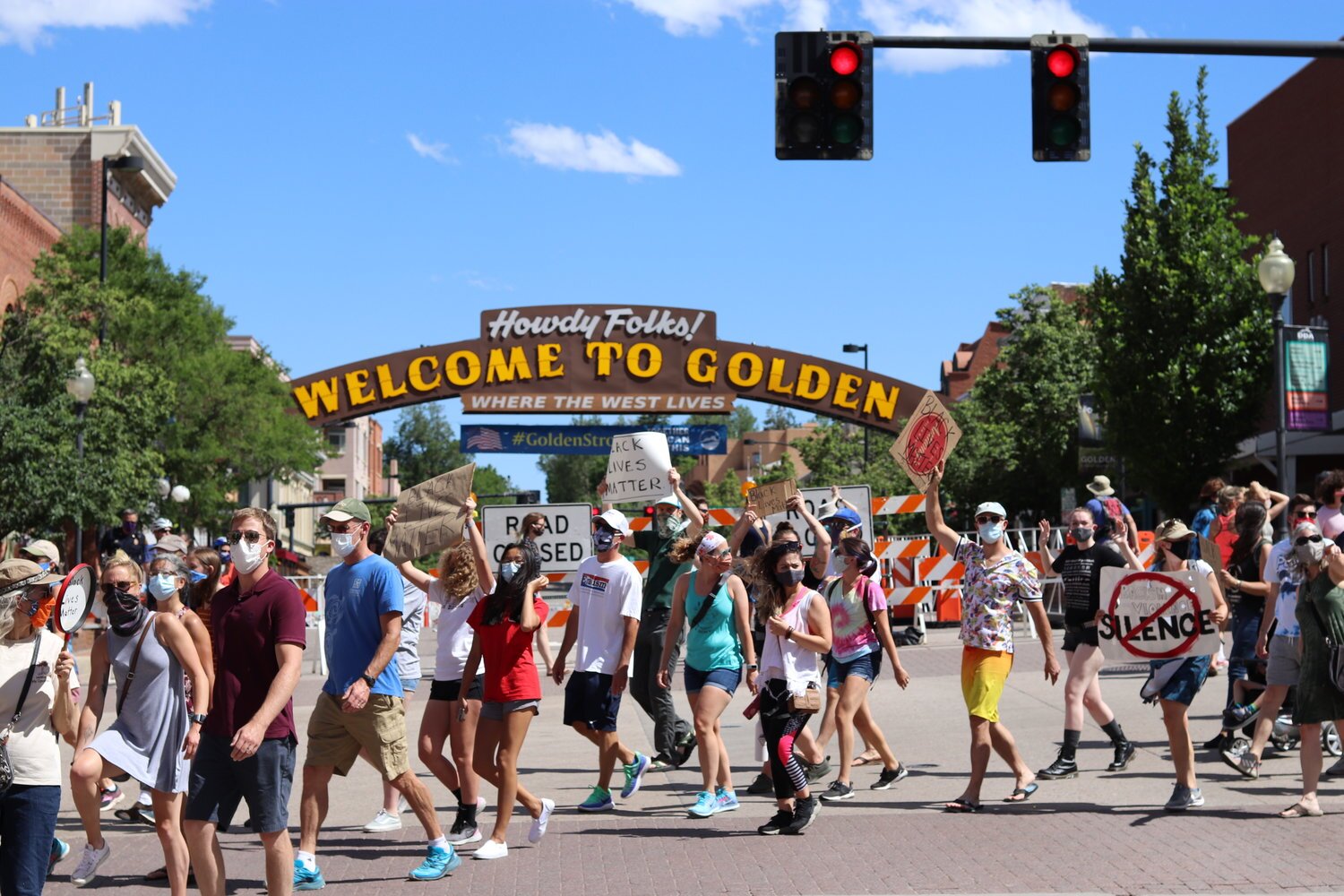Metro Denver communities gather in protest

When Hana Berhanu stepped up to the mic in front of hundreds at a June 7 Castle Rock protest, she first spoke about the anxiety she felt in deciding what to share that afternoon.
She didn’t know if she should talk about the secret friend she had in second grade, who continued playing with her despite the child’s parents forbidding it because Berhanu is black.
She could discuss the first time someone told her to “go back to where you came from,” Berhanu said. Or, she could talk about what it felt like, more recently, watching her hometown of Minneapolis burn on television, her longing to be there in person, protesting alongside loved ones, she said.
Instead, she decided to take the advice of a friend, she said, and say what was most on her heart. With that, Berhanu turned away from the crowd, leaned deep into the microphone and let out an agonizing scream.
“I’ve been wanting to scream for two weeks now,” she said to applause. “This is my pain. I am coming to you with my pain.”
Berhanu took part in one of several marches, protests and other events across metro Denver in the wake of the May 25 death of George Floyd at the hands of police.
While most attention has been focus on large protests in downtown Denver, residents of other communities have also been gathering to speak of Floyd’s death, police brutality, racism and other issues.
In Castle Rock on June 7, protesters marched from the Philip S. Miller Library parking lot through downtown and gathered in Festival Park. Like a June 2 event, also organized by local residents Janine Reid and Josh Pease, the June 7 protest remained peaceful.

Elsewhere across the metro area:
• In Centennial, a June 8 march in support of Black Lives Matter ended at Willow Creek Park, where a crowd of more than 100 heard Chesney Midcap, 31, speak of her experience growing up with racism that started when she was age 6.
• In Parker, hundreds marched through downtown Parker the night of June 4 in solidarity with the Black Lives Matter movement.

Organizer Nina Garcia said she was surprised at the turnout. She said she has children who are bi-racial and felt she needed to do something to decry racism.
“I don’t want to talk. I want to be about it,” Garcia said. “I want to be part of something that is very near and dear to my heart. My kids have dealt with racism before, and it’s not right.”
• In Golden, near the start of the “Vigil and March for Black Lives” on June 7, Golden City Councilwoman JJ Trout read the words of a black girl growing up in a multiracial family in the city.

“I know my friends and family love me, but I feel scared and people do not understand,” the girl had said.
Trout then shared the words the girl’s mother said she had recently told her white son, who had said he felt scared for his black sister.
“For white people, we know not to talk about it [racism], but we need to be uncomfortable to make change,” said the mom.
There were also several Golden police officers present at the march, including Police Chief Bill Kilpatrick. On June 2, Kilpatrick released a letter calling Floyd’s murder “repulsive, appalling and unconscionable.”
• In Northglenn, about 65 people gathered at E.B. Rains Park on a windy morning June 6, walking along Community Center Drive to the Northglenn Justice Center.
The walk was meant to show solidarity with demonstrators around the county seeking to promote racial justice. They paused at the police station briefly, holding a silent vigil for 10 minutes in grass in front of the building before walking back to the park.
City Councilor Katherine Goff joined the walk as a resident, she said.
“I think racism is systemic in our society and everyone needs to work on it, and include myself in that,” Goff said.
• Arvada has seen small protests take place every weeknight from 5-6 p.m. in front of the city hall building. On June 8 the crowd numbered about 20 people.
Colorado Community Media Reporters Jessica Gibbs, Nick Puckett, Ellis Arnold, Scott Taylor, and Paul Albani-Burgio contributed.
